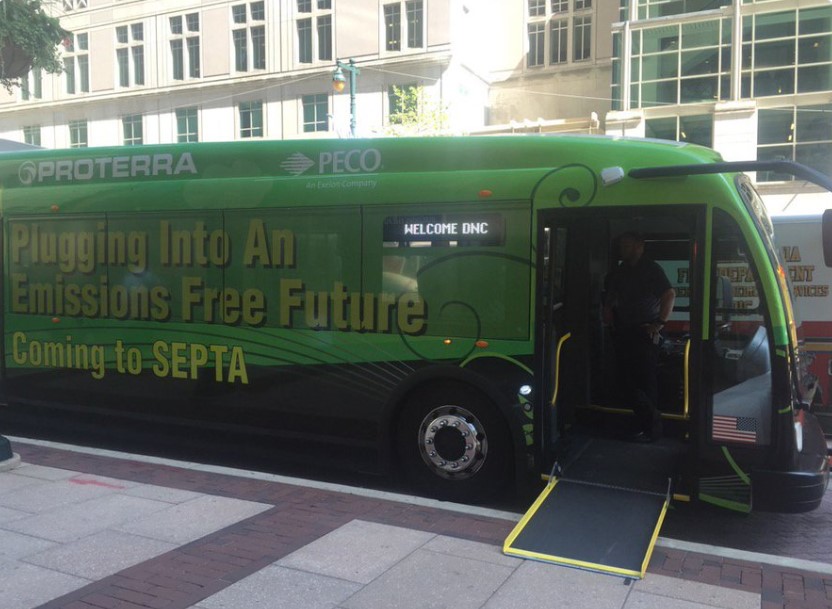BELIVEAU: Biden’s Electric Bus to Nowhere

Pennsylvania lore talks of the fabled bus to nowhere—a mythical vehicle that provides rides to lost souls. And, by the looks of it, President Joe Biden appears to be driving this legendary vehicle.
To address climate change, “Scranton Joe” wants to swap the ubiquitous yellow school bus for something greener.
As part of a broader $5 billion grant competition under its Clean School Bus Program, the U.S. Environmental Protection Agency (EPA) recently announced its $47.3 million plan to help Pennsylvania school districts transition to electrical vehicles (EVs). The School District of Philadelphia will receive $7.9 million to purchase 20 “clean” school buses. Three southwestern Pennsylvania school districts, including Pittsburgh Public Schools, will receive 75 new buses.
“Thanks to President Biden’s historic investments in America,” said EPA Administrator Michael Regan in the January press release, “thousands more school buses will hit the road in school districts across the country, saving school districts money and improving air quality at the same time.”
But before fully converting to EVs, Pennsylvania school districts may want to seek a second opinion from the Southeastern Pennsylvania Transportation Authority (SEPTA). For the commonwealth’s largest transit agency, EVs paint a hard-knock, costly lesson of “buyer beware.”
SEPTA once had the third-largest EV fleet. Today, the agency’s $24 million fleet of 25 electric buses collects dust. In 2020, SEPTA reported significant problems after finding cracked frames on its electric buses, forcing the agency to sideline its entire fleet. While parked at a SEPTA depot, one bus even burst into flames.
SEPTA purchased this dysfunctional fleet from Proterra, the nation’s largest electric bus manufacturer. In 2016, the company provided literal free rides to SEPTA executives during the Democratic National Convention in Philadelphia, just months before purchasing its sizable fleet of now-defunct EVs.
Proterra filed for bankruptcy in 2023, meaning SEPTA and countless other shorted agencies that converted to electric buses have zero chance of a refund on their faulty buses.
SEPTA isn’t the only agency experiencing problems with EVs. Similar accounts of faulty electric buses—and their myriad of mechanical and electrical shortcomings—are coming out of North Carolina, Colorado, California, Texas, Michigan, and Kentucky.
The market is quickly turning against EVs.
Federal dollars might be the only thing keeping electrical buses afloat. Electric buses cost more to purchase and maintain than regular diesel buses. Furthermore, these already-pricey buses also require costly equipment and infrastructure to keep them charged and road-ready. Taxpayers will have to pick up the burden of paying for unreliable buses in the name of alarmist climate action.
This bus initiative is not the administration’s only misplaced policy proposal affecting Pennsylvania. Biden’s recent ban on exporting liquified natural gas (LNG) also negatively impacts the Keystone State and its energy-rich markets.
Even U.S. Sens. Bob Casey and John Fetterman—loyal, party-line Pennsylvania Democrats—are pushing back on Biden’s misguided LNG ban.
“While the immediate impacts on Pennsylvania remain to be seen, we have concerns about the long-term impacts that this pause will have on the thousands of jobs in Pennsylvania’s natural gas industry,” Casey and Fetterman said. “If this decision puts Pennsylvania energy jobs at risk, we will push the Biden Administration to reverse this decision.”
Biden’s “green” crusade prioritizes extreme environmental activists and renewable-energy lobbyists over the needs and concerns of everyday Pennsylvanians.
Big-government policies coercively forcing EVs and renewables are not the silver bullet for climate action. The market can reduce carbon emissions and respond better when government policy prioritizes reliability and fiscal responsibility rather than picking industry winners and losers.
Instead of pushing EVs and banning affordable energy production, the Biden administration should focus on reducing the regulatory burdens inhibiting technologies that will positively impact our natural environment without jeopardizing our economic environment, such as carbon-capture technology and small module nuclear facilities.
Additionally, removing the pipeline permitting nightmares preventing Pennsylvania from unleashing its energy into the national and international marketplace should be a higher priority than unreliable “green” technologies.
Considering the importance of the Keystone State to his reelection campaign, Biden should tread carefully with Pennsylvanian voters. Otherwise, his reelection hopes might join him on that elusive ride to nowhere.



